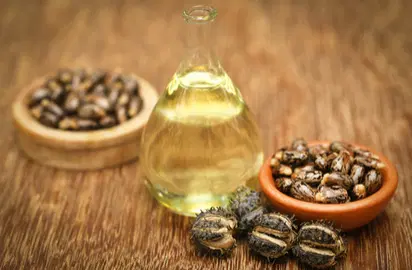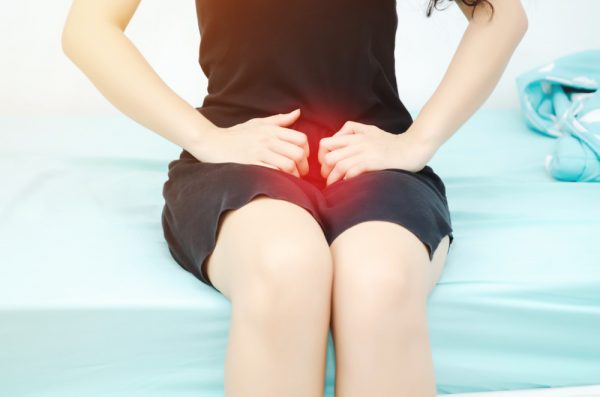Vaginal dryness is a common condition that affects many women at some point in their lives. It occurs when the vaginal tissues become less lubricated and moisturized, leading to discomfort, itching, and pain during intercourse. This issue can significantly impact a woman’s quality of life and intimate relationships. While there are various treatments available, finding a natural remedy for vaginal dryness is often preferred due to concerns about potential side effects associated with conventional medications.
Natural remedies offer a gentler approach to addressing vaginal dryness without the use of harsh chemicals or synthetic substances. One such remedy that has gained popularity is castor oil. Castor oil, derived from the seeds of the castor plant (Ricinus communis), has a long history of traditional use for its numerous health benefits. It is rich in fatty acids, particularly ricinoleic acid, which gives it its unique properties.
By exploring the potential of castor oil as a natural remedy for vaginal dryness, women can discover a safe, effective, and holistic approach to managing this condition. In addition to providing lubrication and moisture, castor oil offers additional benefits such as anti-inflammatory and soothing properties, making it an attractive option for addressing the discomfort associated with vaginal dryness.
In this article, we will delve into the causes and symptoms of vaginal dryness to provide a comprehensive understanding of the condition. We will then introduce castor oil, discussing its origins, composition, and properties that make it suitable for addressing vaginal dryness. Furthermore, we will explore the specific benefits of castor oil for vaginal dryness and provide guidance on how to use it effectively. Additionally, we will touch upon other natural remedies and lifestyle changes that can complement the use of castor oil for optimal vaginal health.
It is important to note that while natural remedies like castor oil can offer relief for mild to moderate cases of vaginal dryness, severe or persistent symptoms may require medical attention. Therefore, we will also discuss when it is appropriate to seek advice from a healthcare professional and the available medical treatments for more severe cases.
By the end of this article, you will gain valuable insights into the potential of castor oil as a natural remedy for vaginal dryness and be equipped with the knowledge to make informed decisions about your vaginal health.
Understanding Vaginal Dryness
Causes of Vaginal Dryness
Vaginal dryness can occur due to various factors, both physiological and hormonal. One common cause is a decrease in estrogen levels, which often happens during menopause. Estrogen is responsible for maintaining the health and elasticity of the vaginal tissues, as well as regulating the production of natural lubrication. When estrogen levels decline, the vaginal tissues may become thinner, drier, and less able to produce sufficient moisture.
Recommended: Can We Apply Castor Oil On Private Parts?
Other hormonal changes, such as those experienced during breastfeeding, pregnancy, or certain medical treatments like chemotherapy, can also contribute to vaginal dryness. Additionally, certain medications, such as antihistamines, antidepressants, and hormonal contraceptives, may disrupt the natural lubrication process.
Apart from hormonal factors, vaginal dryness can also result from external factors. These include excessive hygiene practices, such as using harsh soaps or douches, which can disrupt the natural pH balance and moisture levels in the vagina.
Certain lifestyle choices, such as smoking, excessive alcohol consumption, and a sedentary lifestyle, can also affect vaginal health and contribute to dryness.
Symptoms and Impact on Women’s Health
Vaginal dryness can manifest with a range of symptoms that can significantly impact a woman’s overall well-being and sexual health. Common symptoms include persistent dryness, itching, burning, and discomfort during sexual intercourse. These symptoms can lead to decreased libido and sexual satisfaction, as well as emotional distress and strained relationships.

Furthermore, vaginal dryness may cause micro-tears in the vaginal tissues, increasing the risk of vaginal infections, including urinary tract infections (UTIs) and yeast infections. The lack of natural lubrication can also make the vaginal tissues more vulnerable to irritation and inflammation.
Recommended: Can Dirty Fingers Cause Yeast Infection?
It is important to address vaginal dryness not only for the relief of physical discomfort but also for the overall health and quality of life of women. By understanding the causes and symptoms of vaginal dryness, individuals can take proactive steps to manage and alleviate the condition, improving their sexual well-being and overall vaginal health.
Introduction to Castor Oil
Castor oil has been used for centuries for its medicinal properties and is derived from the seeds of the castor plant (Ricinus communis), which is native to Africa but now cultivated in various regions worldwide.
This versatile oil has a rich history dating back to ancient civilizations like Egypt, where it was used for its therapeutic benefits. It was also highly regarded in traditional medicine systems such as Ayurveda and traditional Chinese medicine.
Composition and properties of castor oil
Castor oil is known for its unique composition, containing a high concentration of ricinoleic acid, a monounsaturated fatty acid that accounts for approximately 85-95% of its fatty acid content. Ricinoleic acid is responsible for many of the beneficial properties of castor oil, including its anti-inflammatory, analgesic, and antimicrobial effects.
In addition to ricinoleic acid, castor oil also contains other fatty acids such as oleic acid and linoleic acid, as well as vitamin E, proteins, and minerals. These components contribute to the overall nourishing and moisturizing properties of castor oil.
Castor oil is a viscous, pale yellow to colorless liquid with a distinct aroma. It is easily absorbed by the skin and has a low comedogenic rating, making it suitable for various topical applications.
Castor oil is widely recognized for its potential therapeutic benefits, including its ability to alleviate pain, reduce inflammation, and promote wound healing. These properties make it an intriguing natural option for addressing vaginal dryness and its associated symptoms.
By understanding the history, origin, composition, and properties of castor oil, individuals can appreciate its potential as a natural remedy for various ailments, including vaginal dryness.

Benefits of Castor Oil for Vaginal Dryness
Lubricating properties and moisturizing effect
One of the primary benefits of castor oil for vaginal dryness is its exceptional lubricating properties. When applied topically, castor oil creates a smooth and slippery surface, reducing friction and discomfort during sexual activity. Its viscous consistency helps to mimic the natural lubrication produced by the body, enhancing comfort and reducing irritation.
Recommended: Can We Use Castor Oil For Intercourse?
Moreover, castor oil acts as a natural moisturizer for the vaginal tissues. Its emollient properties help to hydrate and soften dry, dehydrated tissues, restoring moisture and elasticity. Regular use of castor oil can help alleviate the dryness associated with vaginal atrophy and promote overall vaginal health.
Anti-inflammatory and soothing properties
Castor oil contains ricinoleic acid, which possesses potent anti-inflammatory properties. Inflamed vaginal tissues often accompany vaginal dryness, leading to redness, itching, and irritation. By applying castor oil, the anti-inflammatory properties of ricinoleic acid can help reduce inflammation and soothe the affected area.
Additionally, the soothing properties of castor oil can provide relief from discomfort and itching caused by vaginal dryness. It can help calm and nourish the delicate tissues of the vagina, promoting a healthier and more comfortable environment.
Promoting healthy vaginal flora
Maintaining a healthy balance of vaginal flora is crucial for vaginal health. Castor oil exhibits antimicrobial properties, which can help inhibit the growth of harmful bacteria and yeast that can disrupt the natural vaginal flora. By promoting a balanced and healthy vaginal environment, castor oil supports the overall well-being of the vagina and reduces the risk of infections.
Furthermore, the moisturizing and lubricating effects of castor oil can help protect the vaginal tissues and maintain their integrity. This, in turn, supports the growth of beneficial bacteria, such as lactobacilli, which play a vital role in maintaining a healthy vaginal pH and preventing infections.
Recommended: 10 Reasons Why You Have Smelling Private Part and Their Remedies
By harnessing the lubricating, moisturizing, anti-inflammatory, and antimicrobial properties of castor oil, individuals can experience significant relief from the discomfort and symptoms associated with vaginal dryness. It provides a natural and holistic approach to restoring vaginal moisture, promoting tissue health, and enhancing overall vaginal well-being.
How to Use Castor Oil for Vaginal Dryness
1. Choosing the right type of castor oil
When selecting castor oil for vaginal dryness, it is essential to choose a high-quality, cold-pressed, organic castor oil. Cold-pressed oils retain more of their natural nutrients and beneficial properties compared to oils produced through heat extraction methods.
Organic castor oil ensures that no harmful pesticides or chemicals are present in the oil, further enhancing its safety and efficacy.
2. Precautions and potential side effects
Before using castor oil for vaginal dryness, it is crucial to perform a patch test on a small area of skin to check for any allergic reactions or sensitivities. Although rare, some individuals may be sensitive to castor oil and may experience skin irritation or redness. If any adverse reactions occur, discontinue use and consult a healthcare professional.
Additionally, it is important to note that while castor oil is generally considered safe for external use, it is not recommended for internal consumption without proper guidance from a healthcare professional.
3. Step-by-step guide for application or usage
- Wash your hands thoroughly with mild soap and warm water.
- Cleanse the external genital area with a gentle, fragrance-free cleanser.
- Pat the area dry with a clean, soft towel.
- Using clean fingers or a clean cotton ball, apply a small amount of castor oil to the external vaginal area.
- Gently massage the oil into the skin using circular motions. Take care to avoid contact with the urethral opening.
- For internal use, it is advisable to consult a healthcare professional for guidance and instructions.
- Allow the oil to absorb into the skin for a few minutes before dressing or engaging in sexual activity.
- Repeat this process daily or as needed to maintain moisture and alleviate dryness.
It is important to remember that individual responses may vary, and it may take time to observe noticeable improvements. Consistency and regularity in the application of castor oil are key to achieving the desired results.
Recommended: Can You Treat a Yeast Infection While on Your Period?
As with any natural remedy, it is advisable to consult with a healthcare professional before using castor oil for vaginal dryness, especially if you have any underlying medical conditions or are currently using any medications. They can provide personalized guidance and ensure that castor oil is a suitable option for your specific situation.
By following these guidelines and incorporating castor oil into a regular self-care routine, individuals can harness its lubricating and moisturizing properties to alleviate vaginal dryness and promote overall vaginal health.
Other Natural Remedies for Vaginal Dryness
Alternative options and their benefits
While castor oil can be an effective natural remedy for vaginal dryness, there are other natural options that can complement its benefits. Some of these alternative remedies include:
- Coconut oil: Coconut oil is a popular natural lubricant and moisturizer. It has antimicrobial properties and can help soothe dry and irritated vaginal tissues. Additionally, coconut oil contains medium-chain fatty acids that provide nourishment to the skin and support its natural moisture retention.
- Aloe vera gel: Aloe vera is known for its soothing and moisturizing properties. Applying pure aloe vera gel to the vaginal area can help alleviate dryness, reduce inflammation, and promote healing. Look for organic and pure aloe vera gel without added fragrances or chemicals.
- Vitamin E oil: Vitamin E oil is a powerful antioxidant that helps nourish and hydrate the skin. It can be applied topically to the vaginal area to provide moisture and relief from dryness. Vitamin E oil also supports the overall health and elasticity of the vaginal tissues.
Comparing castor oil with other remedies
When comparing natural remedies for vaginal dryness, it’s important to consider individual preferences and sensitivities. While castor oil offers specific benefits such as its lubricating, anti-inflammatory, and antimicrobial properties, coconut oil, aloe vera gel, and vitamin E oil each has their own unique advantages.
Coconut oil, for example, has a lighter texture and a pleasant scent, making it a popular choice for those who prefer a lighter and less viscous lubricant. Aloe vera gel, on the other hand, is soothing and cooling, providing immediate relief to dry and irritated tissues. Vitamin E oil is often praised for its skin-nourishing properties and its ability to support tissue health.
Recommended: Can I Use Dettol To Wash My Private Part?
Ultimately, the choice of natural remedy depends on personal preference, individual response, and any specific allergies or sensitivities that need to be taken into consideration. Experimenting with different options can help individuals find the remedy that works best for them.
By exploring these alternative natural remedies, individuals have a range of choices to address vaginal dryness in a way that aligns with their preferences and needs. These remedies provide additional options for promoting vaginal health and maintaining comfort and moisture in the vaginal area.

Lifestyle Changes to Prevent Vaginal Dryness
Importance of hydration and water intake
Staying hydrated is essential for maintaining overall health, including vaginal health. Drinking an adequate amount of water helps to hydrate the body and promotes the production of natural lubrication in the vaginal tissues.
Aim to drink at least 8 glasses of water per day to ensure proper hydration. Additionally, consuming hydrating foods such as fruits and vegetables can contribute to overall hydration levels.
Dietary considerations for vaginal health
A balanced diet rich in nutrients can support vaginal health and prevent dryness. Incorporate foods that are high in omega-3 fatty acids, such as fatty fish (salmon, sardines), flaxseeds, and chia seeds. These fatty acids help maintain healthy cell membranes and promote lubrication in the body.
Recommended: The Best Pads For Heavy Periods: Top 10 Picks
Including foods with phytoestrogens, such as soy products, lentils, and chickpeas, can provide a natural source of estrogen-like compounds that support vaginal tissue health.
Additionally, consuming foods rich in vitamin E, such as nuts, seeds, and leafy greens, can help nourish the vaginal tissues and promote moisture retention.
Tips for reducing stress and promoting relaxation
Chronic stress can contribute to hormonal imbalances and impact vaginal health. Finding ways to reduce stress and promote relaxation can be beneficial in preventing vaginal dryness. Engage in activities that help manage stress, such as regular exercise, yoga, meditation, deep breathing exercises, or hobbies that bring joy and relaxation.
Prioritizing self-care and taking time for oneself can also help reduce stress levels and promote overall well-being. Getting enough sleep and maintaining a healthy work-life balance are important aspects of managing stress and supporting vaginal health.
When to Seek Medical Advice
Indications for consulting a healthcare professional
While natural remedies and lifestyle changes can be effective for many cases of vaginal dryness, it is important to recognize when it is necessary to seek medical advice. Consulting a healthcare professional is recommended in the following situations:
- Severe or persistent symptoms: If vaginal dryness symptoms are severe, persistent, or worsening despite the use of natural remedies, it is crucial to seek medical attention. This could indicate an underlying condition or hormonal imbalance that requires further evaluation and treatment.
- Pain or discomfort during urination: If vaginal dryness is accompanied by pain, burning, or discomfort during urination, it may indicate a urinary tract infection (UTI) or other urinary issues. Prompt medical assessment is necessary to diagnose and treat any underlying infections or conditions.
- Recurring vaginal infections: If vaginal dryness is frequently associated with recurrent yeast infections or other vaginal infections, it is important to consult a healthcare professional. They can determine the underlying cause and recommend appropriate treatment to address both vaginal dryness and recurring infections.
- Bleeding or unusual discharge: If vaginal dryness is accompanied by abnormal vaginal bleeding or unusual discharge, it is essential to seek medical advice. These symptoms may indicate an infection, hormonal imbalance, or other gynecological condition that requires professional evaluation and treatment.
Recommended: How Long Does a Menorrhagia Period Last?
Medical treatments available for severe vaginal dryness
In cases of severe vaginal dryness or when natural remedies do not provide sufficient relief, healthcare professionals can offer medical treatments. These may include:
- Hormone replacement therapy (HRT): For postmenopausal women experiencing severe vaginal dryness, HRT may be recommended. Estrogen therapy, either in the form of topical creams or low-dose systemic treatment, can help restore vaginal moisture and alleviate symptoms.
- Vaginal estrogen therapy: In cases where systemic hormone therapy is not suitable, healthcare professionals may prescribe localized vaginal estrogen treatments. These can include vaginal creams, tablets, or rings that deliver estrogen directly to the vaginal tissues, improving moisture and reducing dryness.
- Ospemifene:Ospemifene is a selective estrogen receptor modulator (SERM) that is used to treat postmenopausal women with moderate to severe vaginal dryness. It helps to restore vaginal tissue health and alleviate symptoms.
It is important to discuss the available medical options with a healthcare professional to determine the most suitable treatment approach based on individual circumstances and medical history.
FAQs
Is castor oil safe to use in the vaginal area?
While castor oil is generally considered safe for external use, it is not recommended to be used directly in the vaginal area without proper dilution or guidance from a healthcare professional. It’s important to consult with a healthcare provider before using any remedy in the vaginal region.
How should castor oil be used for vaginal dryness?
If a healthcare provider recommends using castor oil for vaginal dryness, they will provide specific instructions. Typically, it may involve diluting castor oil with a carrier oil (such as coconut oil) and applying it externally around the vaginal opening or on a tampon for a limited duration.
Are there any potential side effects of using castor oil for vaginal dryness?
Some individuals may be sensitive or allergic to castor oil. If you experience any adverse reactions, such as irritation, redness, or itching, discontinue use and consult a healthcare professional. It’s crucial to do a patch test before applying castor oil to a larger area.
Can castor oil improve vaginal elasticity?
While castor oil may provide temporary moisture and lubrication, there is limited scientific evidence to suggest that it can enhance vaginal elasticity. Kegel exercises, hormonal therapy, or other specific treatments may be more effective for addressing this concern.
Are there any alternative remedies for vaginal dryness?
Yes, there are alternative remedies for vaginal dryness. These can include over-the-counter lubricants and moisturizers specifically designed for vaginal use, hormone replacement therapy (HRT), vaginal estrogen creams or rings, and lifestyle modifications such as staying hydrated and avoiding irritants.
Can castor oil be used during pregnancy to address vaginal dryness?
It’s important to consult with a healthcare provider before using castor oil or any other remedies during pregnancy, as they can provide personalized guidance based on individual circumstances. They may recommend alternative treatments that are considered safe for use during pregnancy.
How long does it take to see results when using castor oil for vaginal dryness?
The timeframe for experiencing results may vary depending on the individual and the severity of the dryness. Some individuals may notice improvements in moisture and comfort within a few applications, while others may require more time. Patience and consistent use are important.
Can castor oil be used as a long-term solution for vaginal dryness?
Castor oil may provide temporary relief from vaginal dryness, but it may not address the underlying causes or provide a long-term solution. It’s important to identify and address any contributing factors with the help of a healthcare professional to develop a comprehensive treatment plan.
Conclusion
Castor oil proves to be a promising natural remedy for vaginal dryness. Its lubricating properties and moisturizing effect offer relief from discomfort and promote healthier vaginal tissues. With its anti-inflammatory and soothing properties, castor oil helps reduce inflammation and alleviate symptoms. Additionally, castor oil supports a balanced vaginal flora, reducing the risk of infections.
When used alongside other natural remedies and lifestyle changes, such as staying hydrated and maintaining a nutritious diet, women can take a holistic approach to prevent and manage vaginal dryness. While severe cases may require medical intervention, incorporating castor oil into a self-care routine can contribute to improved vaginal health and overall well-being.
